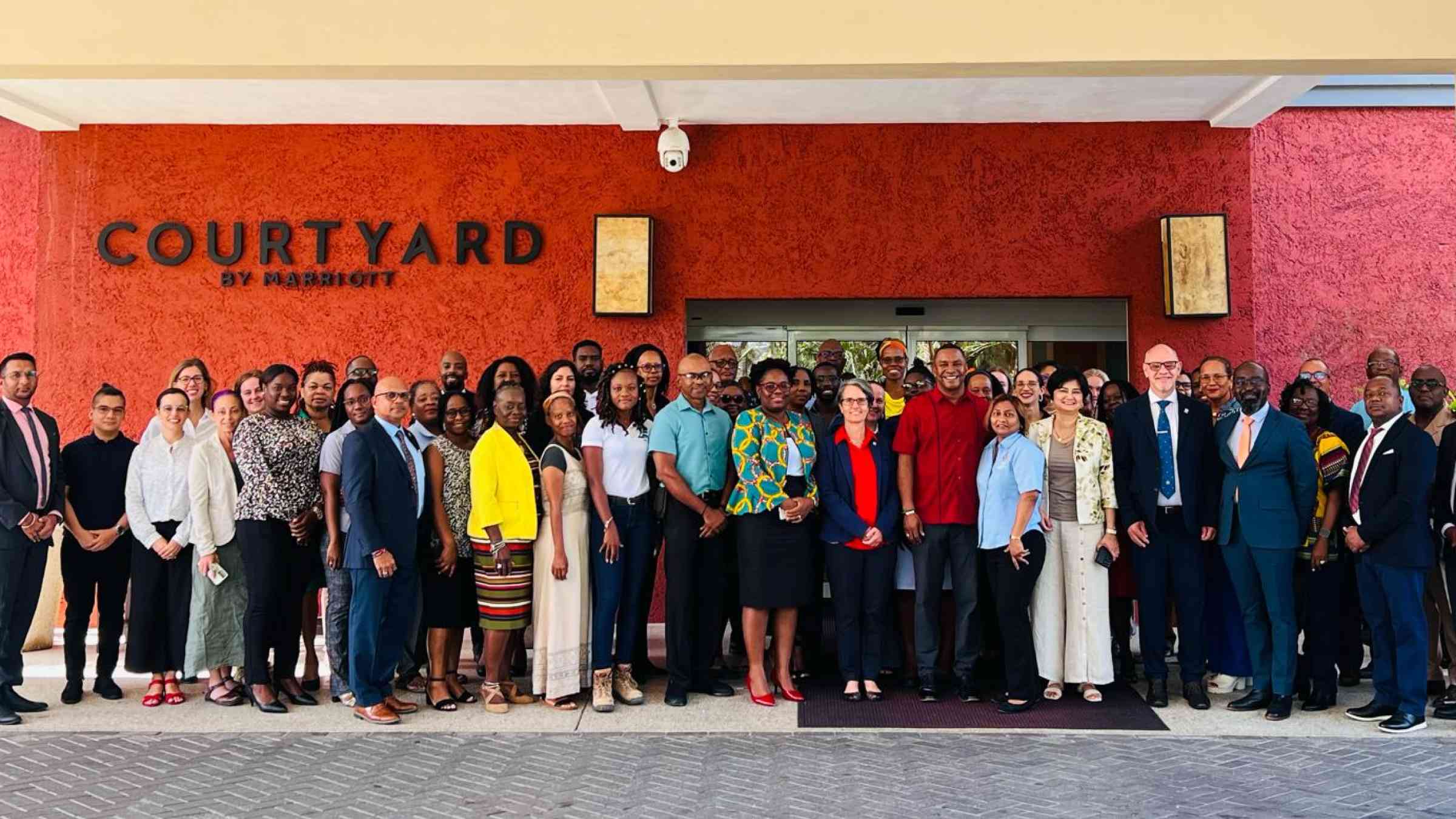Barbados' second EW4ALL National Consultative Workshop: being nimble in the face of unpredictability

Barbados has once again shown its commitment to saving lives and serves as an example of all Caribbean efforts in enhancing Early Warning Systems after hosting the Second Early Warning for All (EW4ALL) National Workshop, which stressed how crucial it is to have timely warnings when disasters strike.
This event brought together stakeholders from various sectors, signaling Barbados' commitment to evolving into a resilient Island State. With representatives from community, national, private sector, regional, international, and developmental agencies in attendance, the workshop served as a critical milestone in Barbados' journey towards resilience.
"We must be nimble just as the weather is unpredictable”, said Minister Wilfred Abrahams, highlighting the need for adaptability in the face of unpredictable weather patterns, emphasizing the importance of agility in disaster risk reduction and emergency management.
The recognition of the Caribbean region for pioneering the methodology for conducting Multi-Hazard Early Warning Systems (MHEWS) Gap Analysis and Implementation plans is a testament to the impactful contributions facilitated by the Caribbean Disaster Emergency Management Agency (CDEMA). This methodology for developing MHEWS Gap Analyses and Roadmaps is being integrated in EW4All approaches. CDEMA has already implemented this methodology in Antigua and Barbuda (2018), Dominica (2018), Saint Lucia (2018), Saint Vincent and the Grenadines (2018), Barbados (2021), Guyana (2021), and Trinidad and Tobago (2021).
EW4All is a global effort to ensure that all people are protected by early warning systems by 2027 and aims to reduce the impact of disasters and the vulnerability of populations through four pillars: improving disaster risk knowledge (led by UNDRR); detection, observations, monitoring, analysis and forecasting of hazards (led by the World Meteorological Organization); warning dissemination and communication (led by the International Telecommunication Union); and promoting community preparedness to respond (led by the International Federation of Red Cross and Red Crescent Societies).
Saskia Carusi, deputy chief of the United Nations Office for Disaster Risk Reduction (UNDRR) - Regional Office for the Americas and the Caribbean, underscored Barbados' substantial progress in formulating the MHEWS’s Policy. “This strategy will significantly enhance the nation's -and region's - readiness against multiple hazards, ensuring timely warnings and improving the efficiency and consistency of alerts through coordinated mechanisms and capacities”, said Carusi.
Participants at the workshop engaged in discussions aimed at validating and prioritizing activities slated for implementation between 2024 and 2027. These activities are designed to strengthen Barbados' Multi-Hazard Early Warning Systems, fostering a comprehensive and collaborative approach to disaster risk management.
As Barbados looks towards the future, the EW4ALL initiative reinforces the nation's steadfast commitment to building a resilient framework against the unpredictable challenges posed by systemic risks. By investing in multi-hazard early warning systems, Barbados aims to mitigate the impacts of disasters and safeguard its communities and resources for generations to come.
This workshop was supported by USAID’s Bureau for Humanitarian Assistance, whose commitment to providing life-saving humanitarian assistance and coordinating international disaster response efforts has been instrumental to the collective effort of building resilient communities.